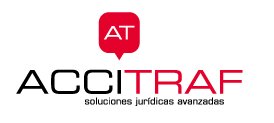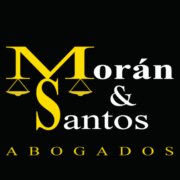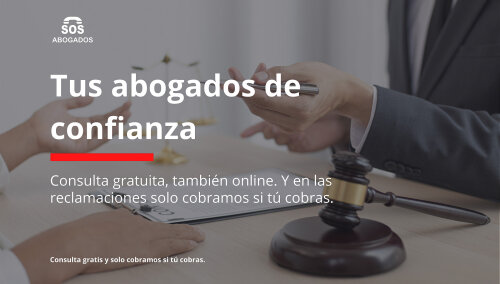Best Criminal Defense Lawyers in Salamanca
Share your needs with us, get contacted by law firms.
Free. Takes 2 min.
List of the best lawyers in Salamanca, Spain
About Criminal Defense Law in Salamanca, Spain
Criminal defense law in Salamanca, Spain, is governed by both national legislation and local regulations. Criminal offenses, from minor infractions to serious felonies, are prosecuted by public authorities, and those accused are entitled to a fair defense under Spanish law. In Salamanca, as in the rest of Spain, the process is guided by the Spanish Criminal Code and the Criminal Procedure Law. Every suspect or accused individual has the right to legal counsel, to remain silent, and to a fair and public trial. Local lawyers specializing in criminal defense play a crucial role in safeguarding the rights of their clients throughout investigations, hearings, trials, and appeals.
Why You May Need a Lawyer
There are various situations in Salamanca where seeking the help of a criminal defense lawyer is essential. These include being formally accused or investigated for a crime, being detained or arrested by law enforcement, or being summoned to declare as a suspect in court. Legal representation is also crucial if you have been the victim of a wrongful accusation or are facing charges such as theft, assault, drug-related offenses, fraud, domestic violence, or traffic incidents leading to injury or death. A lawyer can guide you through complex procedures, advocate for your rights, negotiate with prosecutors, and help ensure the best possible outcome in your case.
Local Laws Overview
Criminal law in Salamanca follows the framework set by the Spanish Criminal Code (Código Penal) and Criminal Procedure Law (Ley de Enjuiciamiento Criminal). Spanish law classifies offenses as minor offenses (delitos leves), less serious offenses (delitos menos graves), or serious offenses (delitos graves). Even for minor offenses, a criminal record may result. Key features of the local criminal process include the right to be informed of charges, presumption of innocence, and the guarantee of legal assistance from the moment of arrest. Certain procedures, such as fast-track trials for some offenses and specific rules for juvenile offenders, may also apply in Salamanca. It's also important to be aware of aggravating or mitigating circumstances established by local courts.
Frequently Asked Questions
What should I do if I am arrested in Salamanca?
You have the right to remain silent and request a lawyer immediately. Do not answer questions without your legal representative present. Cooperate respectfully with police but assert your right to legal counsel.
Can I get a public defender in Salamanca if I cannot afford a private lawyer?
Yes, if you meet certain income requirements, you may be assigned a public defender free of charge. Application is usually made through the local Bar Association (Colegio de Abogados).
What are my rights as a defendant during a criminal procedure?
You are presumed innocent until proven guilty, have the right to legal representation, can remain silent, must be informed of the charges against you, and can present evidence and witnesses on your behalf.
How long can the police detain me without formal charges?
Generally, the maximum detention period without formal charges is 72 hours, after which you must either be released or brought before a judge.
What types of penalties could I face if convicted?
Penalties range from fines and community service to imprisonment, depending on the severity of the offense. Ancillary penalties, such as disqualification from professions or restraining orders, may also be imposed.
Will I get a criminal record even for minor offenses?
Yes, even convictions for minor offenses (delitos leves) can lead to a criminal record, which may impact your employment and travel prospects.
Can I appeal a criminal conviction in Salamanca?
Yes, you have the right to appeal judgments to a higher court. Your lawyer will guide you through the appeal process and deadlines.
What should I do if I am wrongly accused of a crime?
Contact a criminal defense lawyer immediately to assist in gathering evidence and building a defense. Do not attempt to resolve the matter without legal guidance.
Can I speak to my family or friends after being arrested?
You have the right to inform a family member or another party of your detention, except in exceptional cases where this may risk the investigation.
Is it possible to settle a criminal case out of court?
In some cases, especially for minor offenses or with the victim's agreement, it may be possible to reach settlements that can influence sentencing or lead to case dismissal. Your lawyer can advise you on these options.
Additional Resources
- Colegio de Abogados de Salamanca: The local Bar Association offers information and resources for legal aid services. - Policía Nacional de Salamanca: For matters regarding your rights upon detention and police procedures. - Ministerio de Justicia (Spain's Ministry of Justice): Provides detailed guides on criminal procedure and legal rights. - Oficina de Atención a las Víctimas del Delito: Offers support and guidance for crime victims and accused persons. - Local Legal Aid Offices: Assistance for those qualifying for free legal representation.
Next Steps
If you are facing criminal charges or are under investigation in Salamanca, immediate action is vital. Begin by contacting a qualified criminal defense lawyer who understands local procedures and laws. If you cannot afford legal representation, inquire about public defense services at the local Bar Association. Gather any relevant documentation and prepare a detailed account of your situation for your lawyer. Remember to uphold your rights throughout the process and follow professional legal advice at every stage. Acting promptly and choosing the right legal support can significantly affect the outcome of your case.
Lawzana helps you find the best lawyers and law firms in Salamanca through a curated and pre-screened list of qualified legal professionals. Our platform offers rankings and detailed profiles of attorneys and law firms, allowing you to compare based on practice areas, including Criminal Defense, experience, and client feedback.
Each profile includes a description of the firm's areas of practice, client reviews, team members and partners, year of establishment, spoken languages, office locations, contact information, social media presence, and any published articles or resources. Most firms on our platform speak English and are experienced in both local and international legal matters.
Get a quote from top-rated law firms in Salamanca, Spain — quickly, securely, and without unnecessary hassle.
Disclaimer:
The information provided on this page is for general informational purposes only and does not constitute legal advice. While we strive to ensure the accuracy and relevance of the content, legal information may change over time, and interpretations of the law can vary. You should always consult with a qualified legal professional for advice specific to your situation.
We disclaim all liability for actions taken or not taken based on the content of this page. If you believe any information is incorrect or outdated, please contact us, and we will review and update it where appropriate.
Browse criminal defense law firms by service in Salamanca, Spain
Salamanca, Spain Attorneys in related practice areas.













